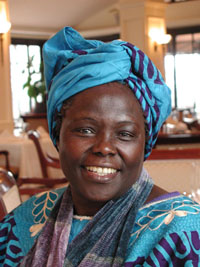At USAID, it’s bye bye bureaucracy, hello local competition
This guest blog was written by Porter McConnell, policy and advocacy manager, Aid Effectiveness Team, Oxfam America As part of a broader reform effort to make US foreign aid more effective, USAID is peeling away layers of bureaucracy, bit by bit. The latest casualty in this battle against obscure and painful regulations that get in […]
This guest blog was written by Porter McConnell, policy and advocacy manager, Aid Effectiveness Team, Oxfam America
As part of a broader reform effort to make US foreign aid more effective, USAID is peeling away layers of bureaucracy, bit by bit. The latest casualty in this battle against obscure and painful regulations that get in the way of helping people help themselves? A little thing called the Source, Origin, and Nationality regulation, or S/O/N. The S/O/N led USAID to buy much of the goods it needed in the field from the US, and submitting to a lengthy waiver process when this was impractical or costly. After a year-long public consultation, reforms to this clunker of a rule went live this week.
Now that USAID has used its authority under law to change the S/O/N rule, it can buy the goods it needs not just from the US, but also from the country where the good is being used, or another low income country with a competitive price. But wait, isn’t buying American a good thing, you ask? Well, not always. If it’s ten times as expensive and takes months to get there, it’s probably not the best use of taxpayer dollars, especially when delay could cost peoples’ lives. Also, if your goal is to help people in poor countries help themselves, you probably want to support the local small businesses that employ those people, so they can feed their families, and be less dependent on our aid, right? In that case, buying American is shooting ourselves in the foot.
Fixing the S/O/N is just one regulation peeled back in a much larger battle. There are still plenty of other senseless or antiquated regulations whose demise would make a big difference for the lives of poor people overseas, and also save US taxpayer dollars. Ultimately, the best use of US foreign aid dollars is to invest in genuine partnerships with poor people and their governments, the kind that will put us out of the aid business for good. But make no mistake: this one little reform will make a big difference for that small business in Kenya that gets the USAID contract, and can hire more Kenyans, who can send their kids to school. Who knows, maybe one of those kids will grow up to be the next Wangari Maathai or John Githongo.
